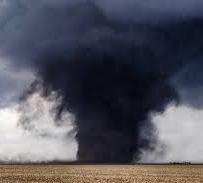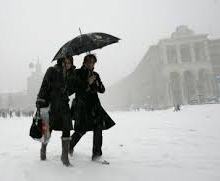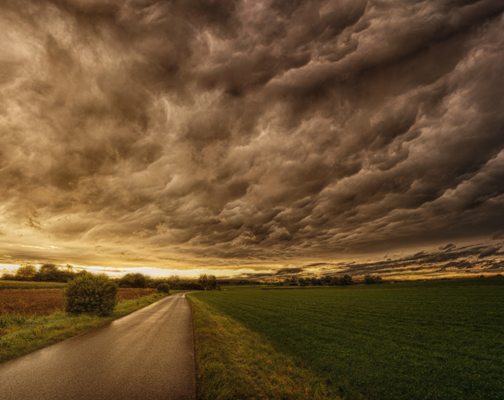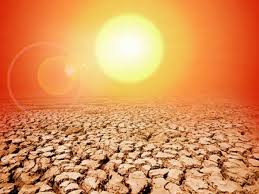
“The weather supplies many metaphors for our changeable minds. Moods can brighten and darken, dispositions can be sunny, futures can be under a cloud and relationships can be stormy. Like the weather, our emotions sometimes seem like fickle forces of nature: unstable, enveloping and uncontrollable.”
“Researchers in Germany sought to find out whether day-to-day weather affects people's moods, but branched out beyond just sunny and cloudy and looked at temperature, wind, sunlight, rain and snow, air pressure, and how long the days were.”
Study Sheds Light on Whether the Sun, Wind, Rain Sway Our Emotions By Kelley Colihan
Most people don’t need scientific reports or the latest news article to know the weather affects moods. All we have to do is pay attention to what is going on around us … and inside us. But as human beings, we often make assumptions about the “obvious” which turn out to be incorrect or at least skewed. So it doesn’t hurt to check on the latest research to confirm or challenge what we’ve personally observed in our lifetimes.

BUT THE STUDY SHOWS...
The fact that there are at least a zillion studies about weather and how it affects people, should be enough to prove there is both interest and variation in weather impacts. This plethora of research often results in conflicting results, but the Journal of Psychological Science found these inconsistencies may be due to two important factors: the season and how much time is spent outside.
The inconsistencies didn’t put me back to square one, but forced me to comb through a lot of articles and studies on weather and mood to filter out those things which are generally consistent and accepted by researchers.
WEATHER DOES AFFECT MOOD, HEALTH, AND SOCIAL WELL BEING
These are the common general “truths” or, at least, the consistent beliefs I found in most of the references I used and is the level playing field, so to speak.
● Weather does affect mood, health, and social well being; the strength and nature of that relationship varies from person to person;
● The impact of weather on you may depend on your personality type;
● Weather doesn’t have to impact your mood;
● Even though the day-to-day weather can affect your mood and your personality, it doesn't define who you are as a person;
● If you're in a good mood, chances are, bad weather won't bring you down too much.
● Mood disorders can be susceptible to seasonal influences, with a typical worsening in the winter months.
● Sleep is affected by the weather. If it is cold, people are more likely to sleep more lightly and if it’s too hot, sometimes they can’t sleep at all.
“DAY-IN DAY-OUT”
Song written and performed by David Bowie, Album “Never Let Me Down” - 1987
The study data implies to me a difference in the impacts between the day-in day-out climate of a location and / or extended periods of extreme weather conditions, and shorter periods of weather, like a rainy day or a foggy week.
“STORMY WEATHER”
Song by Harold Arlen; Lyrics by Ted Koehler; first performed by Ethel Waters at The Cotton Club, Harlem 1933

● Wintertime can bring you down;
● Cold temperatures can lead to physical lethargy;
● Cold temperatures can cause physical pain related to other influences such as arthritis;
● Temperature can affect mood as a result of energy usage. In the winter our bodies have to work harder to maintain body temperature and our immune systems have to work harder to keep us healthy;
● Extreme rain brings out the worst in people;
● Rain can cause you to eat more;
● A lack of sunlight can make you sad;
● Rain makes everything more difficult and can affect your lifestyle in ways not conducive to a good mood.
● Drops in barometric pressure when wet weather is on its way, can cause a headache and achy and stiff feelings in general;
● Rain causes us to stay inside and socialize less. Socializing is actually one of the most powerful antidepressants of all, as are sunlight and exercise.
In other words, winter weather, cold temperatures, rainy and gloomy skies tend to put people in a less positive mood. They’re downers.
“I’M WALKIN’ ON SUNSHINE”
Song written by Kimberley Rew for Katrina and the Waves' 1983

● Higher temperatures can bring a depressed person up;
● Warm climates have a lower death rate;
● Pleasant weather (higher temperature or barometric pressure) is related to higher mood, better memory, and ‘‘broadened’’ cognitive style during the spring as time spent outside increased;
● Being outside can improve your memory, and boost creativity;
● Fresh air and sunshine may help relieve depression;
● When the sun comes out, you may alter your behavior without even realizing it. Studies suggest, for instance, that on sunny days people help each other more and leave more generous tips when eating at restaurants;
● A 50-minute nature walk improves mood and memory – even photos of green space improve mood.
If I am interpreting these findings correctly, the experts are saying when people experience warmer and more comfortable weather (climate?) which lets them go outdoors and be active, mood improves and spirits rise.
“COME RAIN OR COME SHINE”
Music by Harold Arlen; Lyrics by Johnny Mercer; written for the musical St. Louis Woman, - 1946
Rain or shine, extreme weather conditions affect mood. Conditions that interfere with people's lives and keep them from doing what they need or want to do, can become irritating and/or sources of anxiety or fright if the conditions are likely to have severe consequences, such as:
Lightning Storm High winds Tornado Heavy snow and ice
Surprisingly, Strong wind has more of a negative effect on mood in spring and summer than in fall and winter. Also, when days become shorter, some people's moods mirror that, while others actually felt more positive feelings.
People are affected differently, and the human body can acclimate itself to fairly extreme differences – just look at the variety of climates in the world we inhabit. I believe how individuals are affected by weather depends a lot on what they've become used to. I went to New Zealand in the early spring. I was freezing the whole time, but I would see local people out running at five in the morning in shorts and sleeveless tops. Burr!
“ALL ABOUT CHEMISTRY”
The third and final album by rock band Semisonic; Song written by Dan Wilson – 2001

While the whole issue of the mood-weather relationship is undoubtedly complicated, on a simplistic level we’re looking at appetite, exercise, exposure to light and particularly sunlight, outdoor time, and sleep. All these factors impact several types of non-clinical, common depression: When life just gets you down.
In this case, much of the discussion centers around biochemistry. Sun shining on bare skin is necessary for the human body to produce Vitamin D, which plays a role in the production of the biochemical serotonin. (Some references called it a hormone.) This biochemical has several critical functions within the human body which we don’t need to go into.
After those functions are taken care of, the remainder is synthesized into “serotonergic neurons” which regulate mood, appetite, and sleep. Thus, it’s often considered a contributor to feelings of well being and happiness. In addition, the substance impacts cognitive functions including memory and learning. The more or less sunlight, the more the mood elevation rises or decreases.
Some of the most powerful depression fighters are socializing with others, plenty of restful sleep, eating right, exercise, sunlight, and outdoor activity … which are some of the advantages of living in a moderate climate which allows outdoor activity and sunlight … and where weather conditions don’t inhibit these natural “antidepressants” as much as heavy weather.
“SAD”
Song by Bo Burnham from the album “Overexposed” (Maroon 5 song) 2018

SAD is a depressive disorder with a seasonal pattern wherein a person’s major depressive episodes are connected to a specific season. While we most commonly think of SAD affecting people only in the fall or winter months, a minority of people also experience SAD during the spring and summer months.
For some, SAD can make living in colder or stormier climates a challenge. It's thought that those who suffer from SAD may be particularly affected by the lack of light during the darker winter months. Studies have found that when SAD sufferers are exposed to light (particularly sunlight during the morning hours), they tend to feel better.
SAD is a relatively uncommon condition, but even those who don't suffer from it may experience drops in mood levels and well-being during the winter months or in colder climates.
Also scientists and researchers also might be overestimating how much the cold weather affects our mood: Some research found that incidences of "wintertime blues" are widely exaggerated, and that most people are not affected by seasonal mood changes.
CONCLUSION
In my humble opinion, based on what I’ve read, most people’s moods are affected by weather but not for very long. If a person eats properly, exercises, and gets enough sleep and sunshine, he probably won’t be affected at all or for only a short time.

https://psychcentral.com/blog/can-weather-affect-your-mood/
http://www.webmd.com/balance/news/20081016/how-the-weather-affects-our-moods
http://www.nzherald.co.nz/lifestyle/news/article.cfm?c_id=6&objectid=11150018
http://www.huffingtonpost.com/2014/01/14/climate-health_n_4568505.html
https://www.bustle.com/articles/113278-6-scientific-ways-weather-affects-your-mood-so-you-can-adapt-your-mind-and-body-through
https://www.elitedaily.com/p/how-the-weather-affects-your-mood-your-personality-according-to-a-new-study-6745419
http://www.healthguidance.org/entry/15843/1/Effects-of-Weather-on-Human-Emotions.html
http://highlysensitiveperson.net/weather-affects-mood/
https://articles.mercola.com/sites/articles/archive/2016/03/31/weather-affects-mood.aspx
http://sunlightinstitute.org/beware-the-anti-depressant-drugs-use-sunshine-instead/
https://www.ncbi.nlm.nih.gov/pmc/articles/PMC3779905/
https://www.ncbi.nlm.nih.gov/pmc/articles/PMC2908269/
https://en.wikipedia.org/wiki/Serotonin
http://www.apa.org/monitor/2011/12/exercise.aspx
http://www.ulifeline.org/articles/433-benefits-of-exercise
https://www.ncbi.nlm.nih.gov/pmc/articles/PMC2651091/
https://www.everydayhealth.com/depression-pictures/different-types-of-depression.aspx
http://www.scienceoflight.org/depression_sad/
http://www.sciencefocus.com/qa/can-changes-atmospheric-pressure-affect-our-mood
http://www.catalogs.com/info/health/barometric-pressure-affect-mood.html








 RSS Feed
RSS Feed